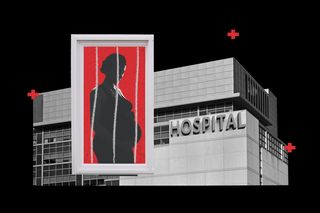
Lack of Pre‑Natal, Hospital Care Have Left Pregnant Women Helpless During Lockdown
“Even two days before my delivery, I didn’t know where I’d be giving birth because my own hospital shut its OPD ward,” says one woman.

A government announcement on April 10 stated, “States need to be mindful that the treatment or medical needs of pregnant women, dialysis patients and those suffering from Thalassemia are attended to.”
However, the ground realities present a different scenario, and therefore, like those with chronic illnesses, pregnant women have had to deal with a host of problems due to the lockdown. The states’ lack of preparedness and failure to prepare for them has not only caused trouble accessing ambulance services and medicines, but also resulted in patients having to find new hospitals at the last minute for deliveries owing to shut OPDs. And the difficulties don’t stop there.
Inadequate care during pregnancy
To minimize the risk of pregnant individuals contracting the virus, doctors have eliminated non-essential hospital visits. “In our field, clinical examination is so important, but now we can’t see patients like we used to. Ideally, even for other cases such as someone experiencing heavy bleeding, I would have first liked to investigate them physically. But now I have no choice,” says Dr. Bhavini Shah Balakrishnan, consultant obstetrician and gynecologist at Mumbai’s Masina Hospital. “I don’t know for how long we can keep doing this,” she adds.
The main challenges need to be tackled within the first and third trimester when the patient needs to undergo tests, scans to check for abnormalities. “But we had to club these scans with a visit or postpone them until the Covid19 situation gets better depending on each case,” says Dr. Anu Vij, an obstetrician and gynecologist at Mumbai-based Motherhood Hospital.
Dr. Vij, like many other doctors, has taken to consulting patients over Whatsapp and video calls. However, telemedicine and virtual consultations have their limits. “If there is an emergency, like a miscarriage, or someone needs instant medical intervention, what are we going to do? We can’t do it over Whatsapp,” says Dr. Vij.
The ICMR announced new guidelines that all pregnant individuals from containment areas, including those who are asymptomatic and likely to deliver in the next five days, should get tested for Covid19. In the middle of a lockdown, when people’s mobility is highly restricted, this has led to a new set of problems for pregnant patients and healthcare providers attending to them.
“Not only are the tests very expensive, but we are also so clueless about where to get them and worried about contracting the virus at these testing centers,” says Sharmila Shetty, a 30-year-old PR professional from Bengaluru. “On the one hand, my gynac says if I don’t show any symptoms, it’s fine not to get the tests but I don’t know if the hospital will allow delivery without the results,” she adds.
Related on The Swaddle:
Domestic Violence Victims Need More Than Hotline Numbers During Lockdown
Women are alone while delivering
The lack of available caredoesn’t end at the pre-natal stage. Data has shown a sharp fall in medical interventions performed on pregnant women during the lockdown, and although the number of deliveries is unlikely to have fallen, the number of unattended home births is likely to have gone up, a report states.
“Given the amount of blood loss during pregnancy and lack of availability of experts with more deliveries at home, especially in the lower middle class, during the lockdown, we are worried that the maternal deaths will increase,” a senior official in the Ministry of Health and Family Welfare, requesting anonymity, told The Wire.
Those who manage to locate a hospital for delivery are finding themselves extremely alone in a difficult time. While Vaishali Narula, a 28-year-old businesswoman from Delhi, who delivered early in April, understands that hospitals need to take precautions and work with minimal resources in the current times, for first-time mothers like her, she says familial support is the least she could have been allowed.
“I was in labor all night, alone. The hospital didn’t allow my husband or either of our mothers to be with me,” she says. “Although the nurses kept checking on me, I had no other patient near me to interact with or distract me from the labor pain. Even my phone was taken away while my family kept waiting outside the hospital for updates from the staff,” she adds.
Lack of hospitals, support staff
Some hospitals refuse to admit pregnant patients at this time. Take Narula’s case for instance. With no prior experience, her delivery couldn’t have come at a worse time, she says. “Even two days before my delivery, I had no idea which hospital would be ready to take me,” says Narula. She had been consulting with a doctor at a Delhi hospital that eventually shut down its OPD section, leaving her to scramble for options at the last minute. Her gynecologist finally helped her find admission in a hospital that was otherwise refusing to take new cases.
At the hospital, Narula received barely any help from the nursing and lactation support staff to help feed the baby, or with other things like helping her walk to the washroom. “My guess is that the limited amount of staff they had was diverted to help with newer deliveries.”
This lack of staff has even the doctors worried. “If there’s an emergency, or something happens to the patient at night, we have no back up to rely on or to help patients with,” says Dr. Balakrishnan. The uncertainty related to the situation and limited knowledge is making their problems worse.“With most hospitals having been converted to Covid19 wards, we know where to send pregnant patients when they test positive. But where and how do we treat non-Covid19 patients?”
Issues stemming from a lack of clarity and adequate medical facilities are not limited to pregnant patients, but are affecting newborns as well. Reports of states cutting back on immunization and maternal health services have been coming to light. As a result of this, newborns and children are missing out on life-saving vaccines. This may raise the risk of an upturn in cases of diseases such as childhood pneumonia, diphtheria, tetanus, hepatitis B, and diarrhea, among others.
Doctors say they have been caught off guard about what to do while keeping everyone’s safety in mind. “The guidelines are changing every day; we’re only trying to figure out what works best for the patient,” says Dr. Balakrishnan. “It’s not only the patients who are worried and anxious, but also us doctors, who are working our best with the resources available,” she adds.
“The mere existence of guidelines mandating that pregnant women must be provided essential services does not enable or ensure that they can access it,” write Ramila Bisht, Jyotishmita Sarma, and Rajashree Saharia, professors at Jawaharlal Nehru University for The Wire.
While it would help for both the state and central governments to ensure medical facilities are available for all, they must also think of ways to introduce non-Covid19 ambulance services and dedicated helpline numbers to safeguard the health of women and their newborn babies are present. “The government needs to keep an eye on the issue of restoration of services, provision of non-discriminatory services to all demographic categories to check the collateral damages and high rate of maternal complication,” said the JNU professors.
Anubhuti Matta is an associate editor with The Swaddle. When not at work, she's busy pursuing kathak, reading books on and by women in the Middle East or making dresses out of Indian prints.
Related


I Self‑Diagnosed My Autism Because Nobody Else Would. Here’s Why That Needs to Change.
